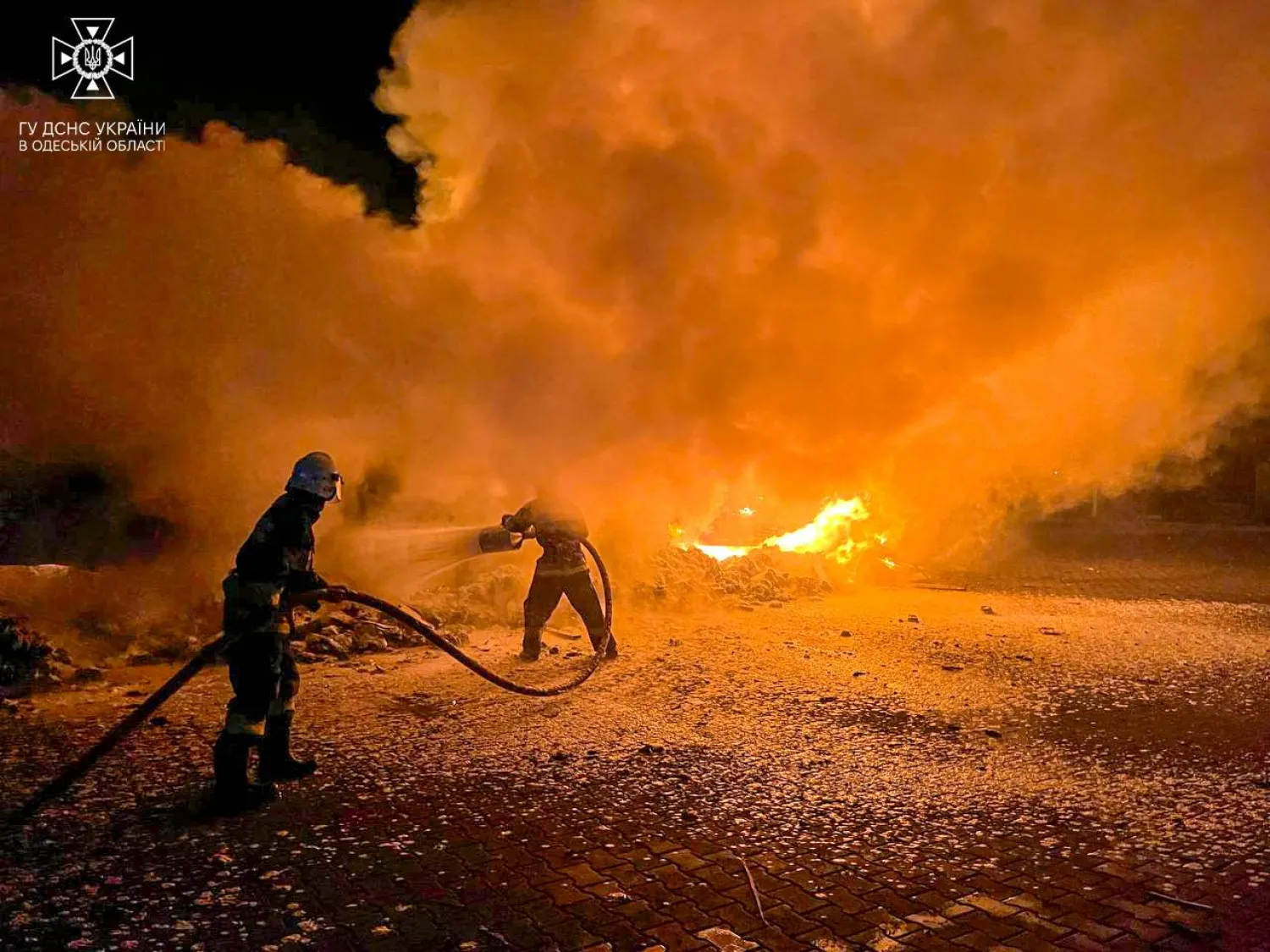Russia launched a new drone and missile strike on Ukraine early on Friday, killing a 10-year-old boy in the northeastern city of Kharkiv and damaging grain and port infrastructure in the Odesa region in the south, Ukrainian officials said.
A drone attack damaged a grain silo in the Izmail district of the Odesa region, regional governor Oleh Kiper said. Nine trucks caught fire at the site but the fire was put out quickly, Reuters said.
The attacks followed a Russian missile strike on Thursday in which Ukrainian officials said 51 people were killed in a village in northeastern Ukraine during a gathering to mourn a fallen Ukrainian soldier.
In the latest strikes, Ukrainian air defenses shot down 25 of 33 drones launched by Russia from the annexed Crimea peninsula, the air force said in a statement.
The drone strikes targeted Odesa and Mykolaiv regions in the south, Dnipropetrovsk region in the southeast, Cherkasy and Zhytomyr regions in the center and also Kharkiv region in the northeast, the air force said on the Telegram messaging app.
In a separate strike on the city of Kharkiv, 16 people were wounded in addition to the 10-year boy who was killed, regional governor Oleh Synehubov said. An 11-month-old baby was among the injured, he said, and houses and cars were damaged.
Moscow denies deliberately targeting civilians, but many have been killed in attacks that have hit residential areas as well as energy, defense, port, grain and other facilities. Russia has intensified attacks on Ukraine's southern regions, home to Ukrainian Black Sea and river ports, since Moscow quit a grain deal in July that had ensured safe Ukrainian shipments via the Black Sea to help mitigate a global food crisis.
"The air alert in Odesa lasted for three-and-a-half hours," Kiper said. "The enemy once again targeted the border and port infrastructure of the Izmail district." The Ukrainian military said that operations at an international ferry checkpoint 'Orlivka' were suspended and vehicles were rerouted following the drone attacks.
Russian Strikes on Ukraine Kill Boy in Kharkiv, Damage Port Infrastructure

Firefighters extinguish burning trucks damaged during a Russian drone attack, amid Russia's attack on Ukraine, at a compound of a port on Danube river in Odesa region, Ukraine September 26, 2023. Press service of a State Emergency Service of Ukraine in Odesa region/Handout via REUTERS

Russian Strikes on Ukraine Kill Boy in Kharkiv, Damage Port Infrastructure

Firefighters extinguish burning trucks damaged during a Russian drone attack, amid Russia's attack on Ukraine, at a compound of a port on Danube river in Odesa region, Ukraine September 26, 2023. Press service of a State Emergency Service of Ukraine in Odesa region/Handout via REUTERS
لم تشترك بعد
انشئ حساباً خاصاً بك لتحصل على أخبار مخصصة لك ولتتمتع بخاصية حفظ المقالات وتتلقى نشراتنا البريدية المتنوعة







